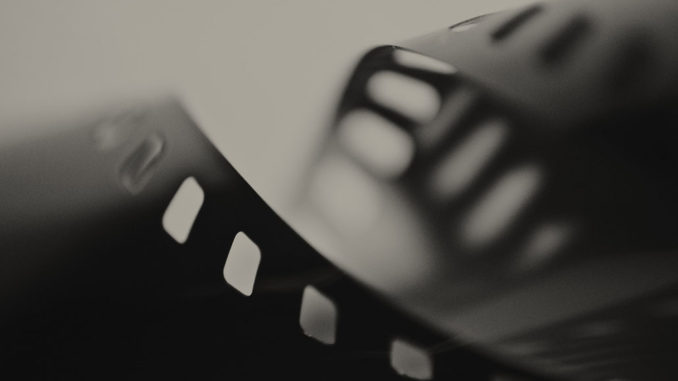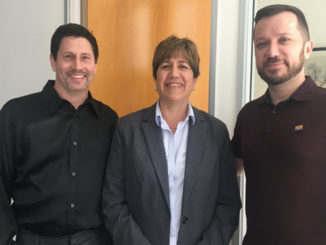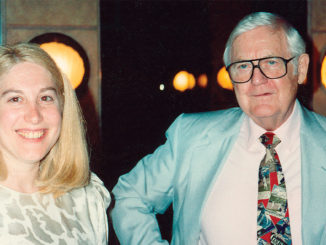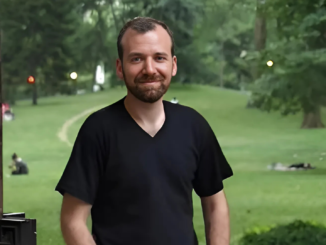
by Dan Holland
Raised in Newport Beach, California, I was exposed to those who made movies; John Wayne lived in my city and I had a friend who acted in Disney films. In my teens, I met Chuck Jones and Mel Blanc at a Looney Tunes retrospective, I went to church with Frank Capra during my summers in June Lake, and Jimmy Stewart started my first 5K Race. So the entertainment business never seemed too out of reach.
One of my seven siblings, Steve, made Super-8 films with his friends, and I played an army guy in their Vietnam War movie. When I saw the ending montage of my character walking into the sunset to the Doors’ “Not to Touch the Earth,” I was floored at the raw emotion it invoked in me. It was a defining moment and my first encounter with the power of image and music.
I borrowed a Super-8 camera, but it was broken and my film was over-exposed. My first ever edits were cutting around the bad footage. My next attempt was a Halloween film and I will never forget that exhilarating, emotional buzz as I watched family and friends react to moments I had created. Throughout high school, I wrote, shot and edited over 50 movies. Years later, I realized these films fed my passion for picture editing.
At USC Cinema School, the editor of Deliverance, Tom Priestley, spoke about the dueling banjos scene. I was fascinated at how clearly and specifically he talked of using music and by his wonder of discovery many years after cutting the scene.
Upon graduation, with no contacts in the entertainment industry, I got my first job from the USC job book as a post-production assistant on a Japanese period adventure movie. The editor was Bill Butler (A Clockwork Orange) and I was amazed at the organization and cleanliness of a professional cutting room.
In another job, I tracked available distribution rights for independent films and kept noticing how Roger Corman produced over 40 films a year. When a buddy from college got an assistant editing job with Corman, I jumped at the opportunity to work as his apprentice editor.
For six months, I worked without pay. Bagels and cream cheese were lunch and home was thankfully rent-free with an aunt and uncle in LA. I was 23 and learning how to handle 35mm film over a bench, around an ACME coding machine and in a Moviola. Soon, I was confidently running dailies on a projector and racking frame and focus to an Academy leader. I distinctly remember the moment when I realized how powerful it was to “own” a craft. Finally an opportunity arose, and I got moved into a paid assistant editor position.
I thought TV would be more family-friendly, especially with union wages and summer hiatus. I took note of my friends’ careers and saw that many were successfully bumping up from assistant to editor, so for me, that meant returning to assistant editing.
After assisting for three years, I was selected as first assistant editor on the non-union feature One Night Stand (1995). One of the editors taught me grace and respect for the craft of editing. He said editors should never talk badly about one another because what we do is difficult — and it usually isn’t the editor who is the problem!
Actress Talia Shire gave me my first bump up to edit on that film, her directorial debut. As we were finishing, we took the film to San Francisco and screened it for her brother, Francis Ford Coppola. It was heady stuff receiving notes from a master director on my first editing gig.
Following this film, I started cutting low-budget films for several different independent companies. Seventeen feature films and five years later, a director friend told me that Florida State Film School was looking for an editing professor. I went for the summer semester, found I loved teaching, and stayed for seven years.
Most people can’t tell you what good editing is, but they know it when they see it. Teaching forced me to articulate the instinctive, break down good editing techniques, and codify my artistic impulses. I became a much better editor for the experience.
In Florida, I met my wife, Brandi Bradburn — also an editor — and after our first child we decided to return to California. I thought TV would be more family-friendly, especially with union wages and summer hiatus. I took note of my friends’ careers and saw that many were successfully bumping up from assistant to editor, so for me, that meant returning to assistant editing.
Because I had recently worked on a Corman co-production, I luckily had enough days to join the Editors Guild. I called a friend who needed an assistant on Cold Case, and thankfully he hired me — which then led to a bump up and my first union editing job!
It’s never easy to take a step down and a leap of faith, especially in our business. But in the long view, that choice paid off for me in a tremendous way. I love my work and am thankful to every editor and director who has given me the opportunity to edit or taught me something new about the craft of editing.





